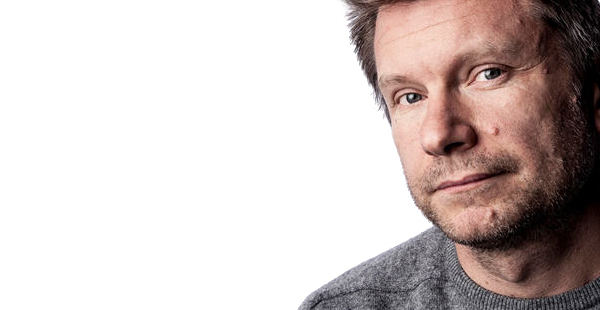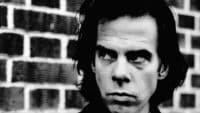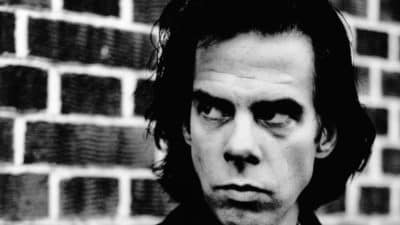Music

A day in the life of… a Photographer
Tom Oldham has been shooting portraits of musicians and sports stars for over 20 years, and his work has adorned the pages of some of the UK’s finest publications. We asked him what it’s like to work as a professional photographer, what tips he’d give to aspiring photographers and how to survive the photo pit.
Tell us about a typical working day…
One of the great aspects of this job is that no day is alike. Being freelance enables you to pick and choose how you spend your time – of which there of course is never enough. So a shoot day might mean a super early start, loading a vehicle with stacks of kit to drive to Manchester with my team, or a cab to City Airport to head off for a shoot in Europe. Otherwise it’s working in the studio, testing lighting and working on techniques with my lighting assistants. I have a studio manager who masterfully arranges meetings and handles all the fun stuff, like your accounts and that, so we sit down and try to plan best we can what is coming at us next.
What do you like most about the job?
The incredible satisfaction (not in a smug way you understand) that comes with creating an image that you had envisaged and sketched out a long time ago and then has come to fruition just how you had pictured it, or better. When this happens, you’re really getting where you wanted to be as a photographer. I really like the opportunities that avail themselves through doing this work – if you’re lucky, you can get to experience wonderful locations and meet a host of fascinating characters. That’s not to say I haven’t spent loads of time in shitholes with dickheads, because I have. That just happens less as your opportunities and work improve.
Do you do it for the love of photography or is just a job?
I couldn’t do this as just a job. It would crush all of your creative spirit and you’d be left empty and lost. I do shoot some things I care about a bit more than others, and I have to earn a living at this but I try to steer my work and career towards things I really want to do. Chase the work and the money will come – and it will be the kind of work you want to produce. Photography has to be a passion that drives you to achieve the best results, bigger shoots, better access – whatever your mark of success may be. It’s expensive and heartbreaking at times, but it can be beautiful.
How did you get started working in photography and how did you get to where you are now?
I’ve put in time. It has been slow progress but it has always headed in the right direction. I started from being given a camera when I was 21 by my parents. I had an incredibly boring job in a shop at that time and as I learnt about the camera it struck me that it could be a ticket to a more interesting life, so I did a night school class. Then a BTEC National Diploma in Plymouth, and afterwards became a technician at the art college there. While doing this I was shooting nightlife (which I was well into), and trying to get published – initially in local publications and then national. This started to work via a few long-defunct titles and then my access improved. With that came approaches from agencies and brands, shooting their parties and talent. Later I aimed more towards portraiture for editorial and commercial uses. That paragraph took 22 years to achieve, by the way.
What’s been the highlight of your career?
There’s been so many highlights but I think portraits of Usain Bolt stick in my mind as a fantastically fun opportunity that didn’t disappoint. Shooting Nick Cave for a Mojo cover turned out beautifully. Alicia Keys. Mario Balotelli. You possibly have a better idea of my career highlight than I do. Dave Grohl was GREAT.
In your opinion, what makes a good Photographer?
It’s a lot of skills combined, so for me it’s ability to balance creative and technical whilst engaging your subject and keeping their focus. I succeed and fail at this non-stop by the way. Dogged determination in combination with flexibility and a cool head also helps. That said, a sense of humour and devastating good looks have helped me more than anything, to be honest. Ask anyone.
What type of kit would you recommend for people just getting in to photography?
A 2014 DSLR can do soooooo much but so can a crappy film compact camera. It’s about your process and dedication to your look I think. It’s so easy to research image-making and how to achieve it now, though I am NOT talking about Instagram filters. Any camera is fine, but expensive prime lenses make more difference than you might immediately give credit.
Are there any hard and fast rules to the photography pit?
We don’t really dictate the rules in there, alas. Grumpy, put upon, tired tour managers and security people do. If it was up to us, we would shoot the last fifteen minutes with flash – they would be my terms. But for shooting it, only the fastest lenses will cut through. Big memory cards and having two camera bodies so you’re ready with that super-wide lens for when she jumps in the crowd. Hey – and if your flash accidentally pops off, apologise to the bouncers afterwards. Being responsive, with a fast ISO quality camera and fast lenses will set you up. Nikon D800 has to be best for that right now.
What advice would you give to anyone who wants to work in this industry?
Create your niche. Work harder than you’d believe possible. Keep at it. Google the Helsinki Bus Theory. I advise this as your workflow if you’re starting out and are unsure how to maximise your efforts:
- Envisage and sketch out the final dream scenario result
- Plan and work out how to achieve this
- Organise a shoot, prepare and involve everyone who might help you
- Execute the shoot and keep at it until you have, without question, absolutely nailed it
- Go home immediately and process your RAW files or film
- Work on your files and retouch
- Review them – have you achieved your initial idea? If so share the shots with everyone involved and invite criticism.
- Learn and grow and repeat.
Who have you most enjoyed photographing/working with and why?
Musicians. There have been many but they’re an odd category of people and I wish I could do what they do. It’s a weird thing to do to make a living, I think, and it has so many characters involved, though not just on stage – backstage is where the proper nutbags live.
Are there any people you’d particularly like to photograph at some point in your career?
Music people do come and go so it would be great to shoot more actors and get involved in that side of creativity, maybe. Old school heroes would be nice, don’t you think? Like Sean Connery? Bishop Desmond Tutu? Bill Murray? Could you address that for me please Ticketmaster? Come on, stick your neck out for Tom. Hollywood is so alluring.
Have you dealt with any ‘divas’ and how do you cope? Do you have any tactics to bring subjects out of their shells?
I have. You smile and swallow it because you are not the talent – they are. Curse all you like, but we wait for them and that’s how it is. Or walk, and don’t get the shot. Your call. I’m glad I’ve sat and waited as that way I’ve created some beautiful images. I’m very genial, friendly, call everyone sir – I want them on my side and if that’s what it takes, I don’t mind. Encourage people, being photographed can be daunting and you need to coax. That’s my approach anyway.
And finally, if you weren’t a photographer what would you be doing?
Pearl diver. A manny. Work in a foot spa. Farm worker. Shoe salesman. Dunno. You hiring? What are the hours?
Check out some of Tom’s work below.
[wooslider slider_type=”attachments” limit=”8″]





